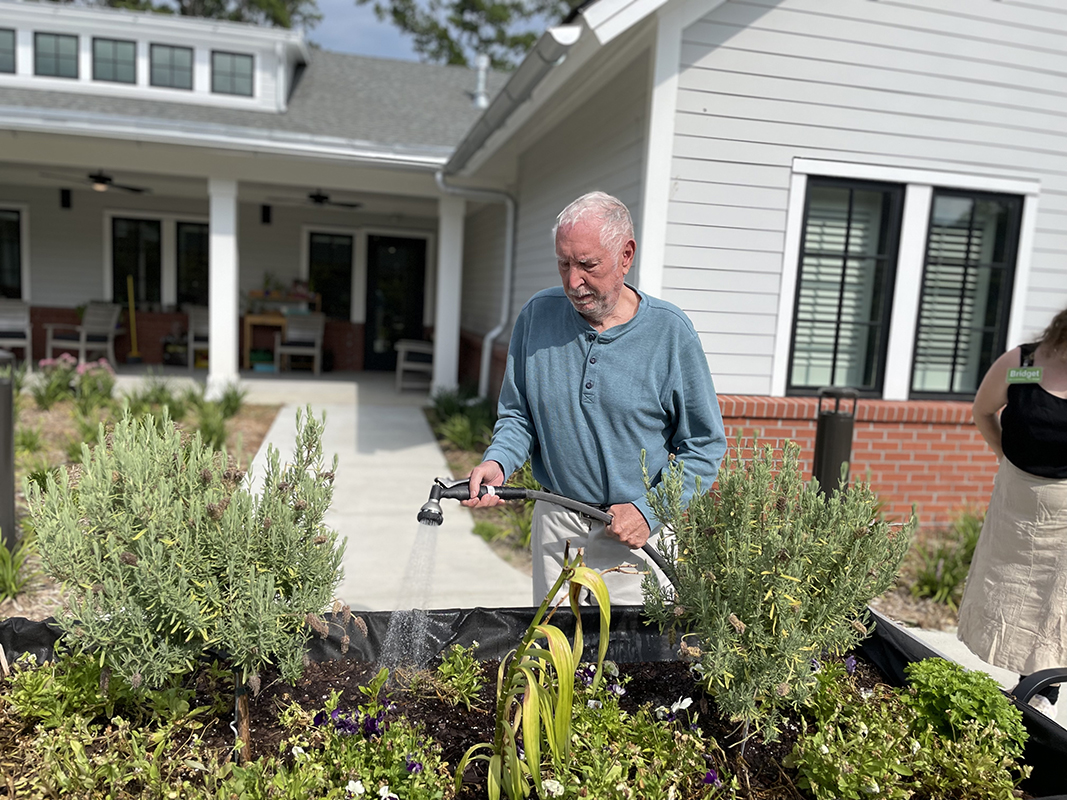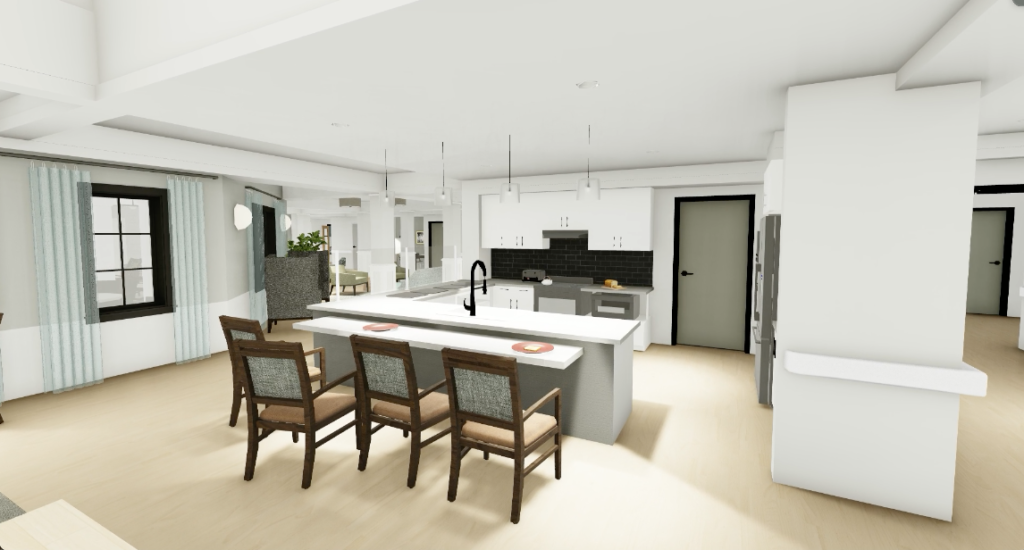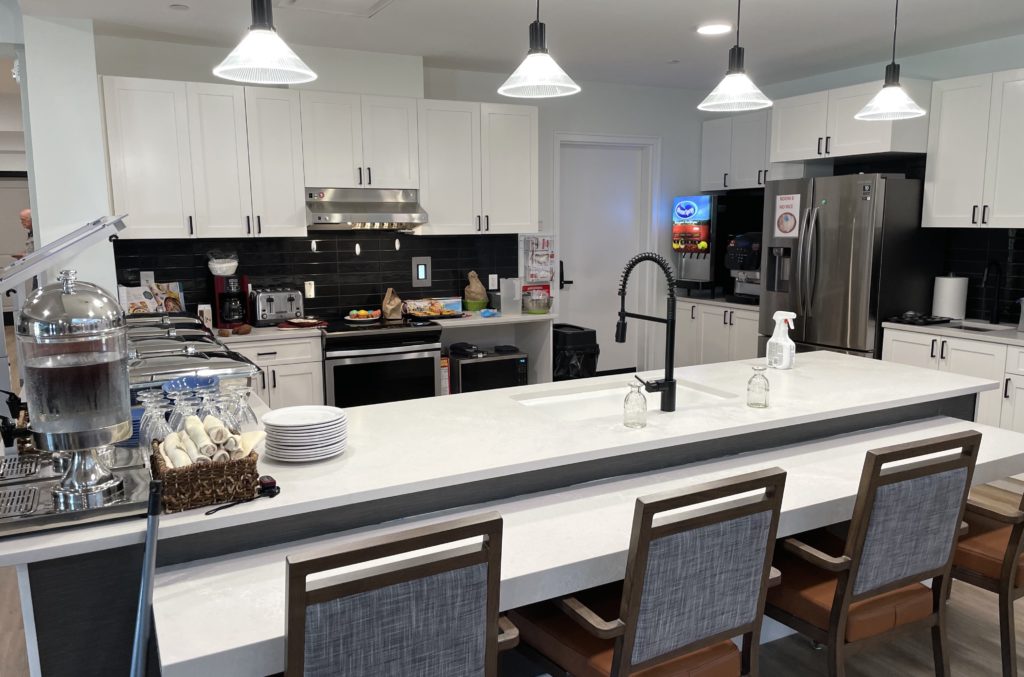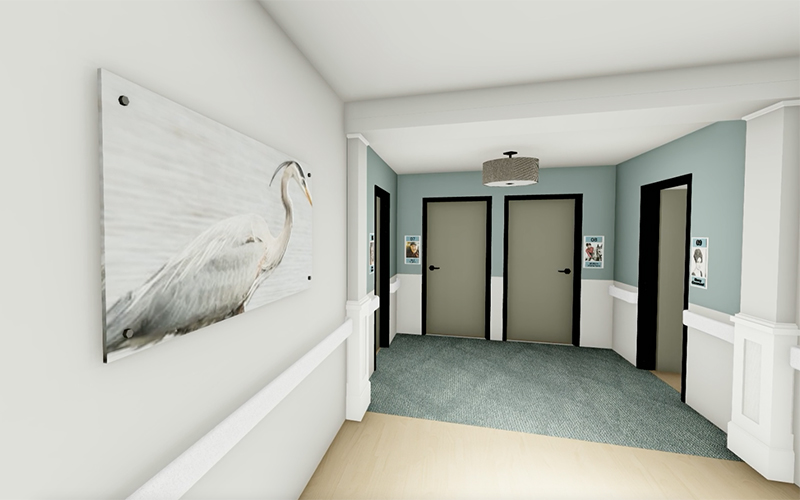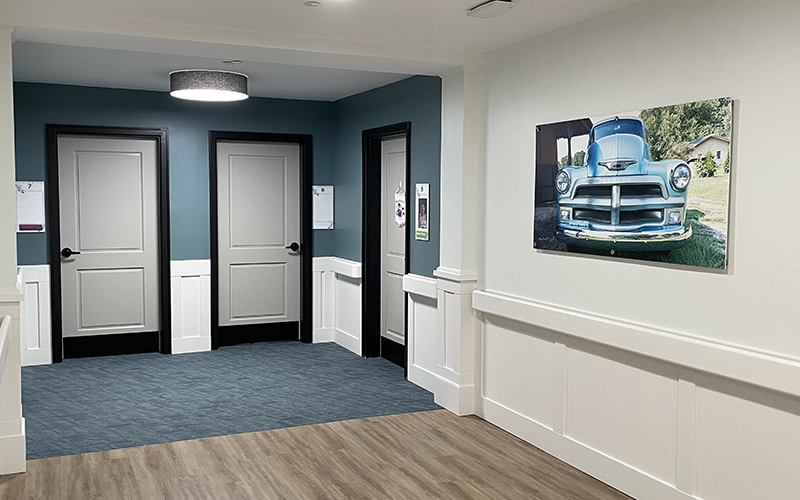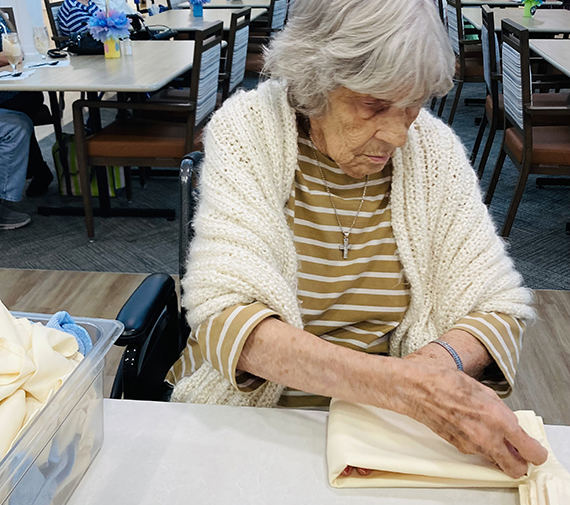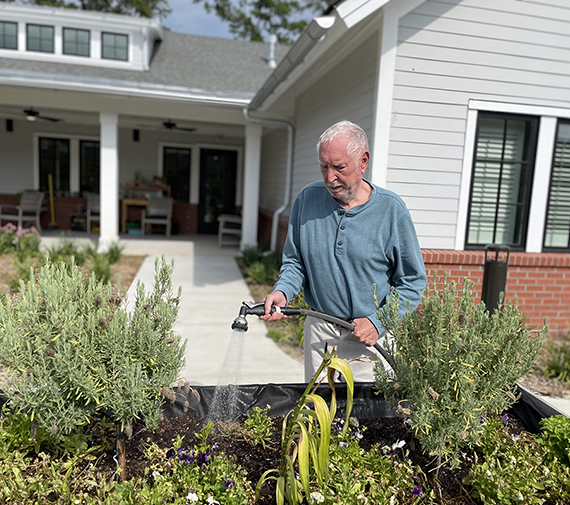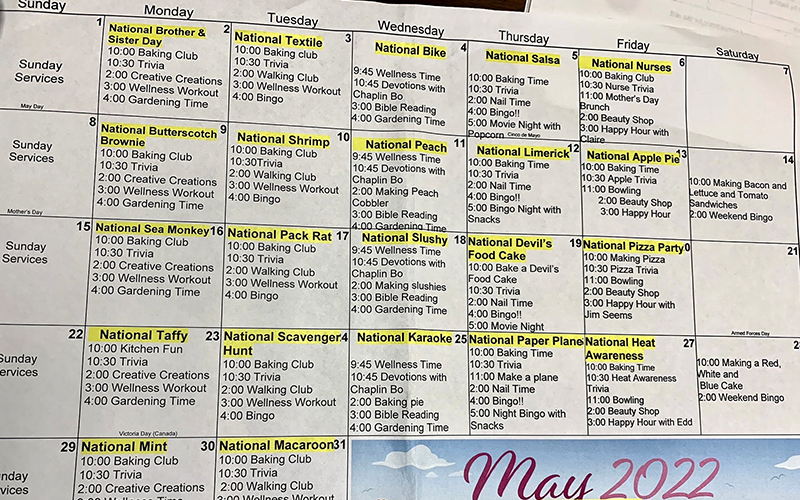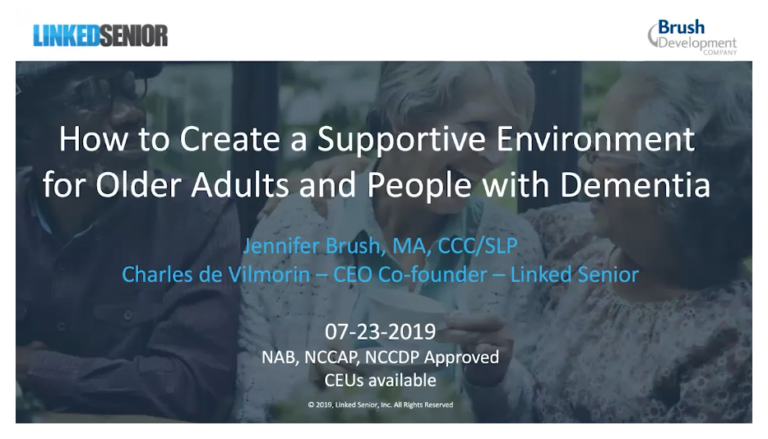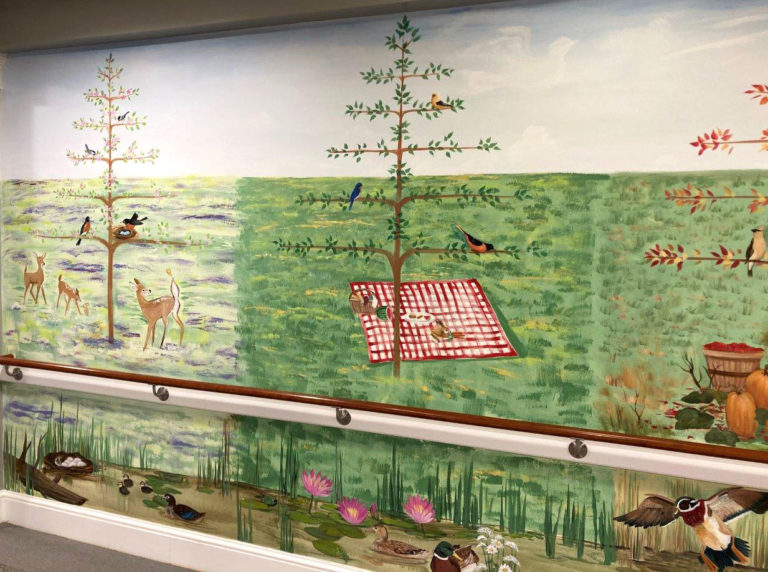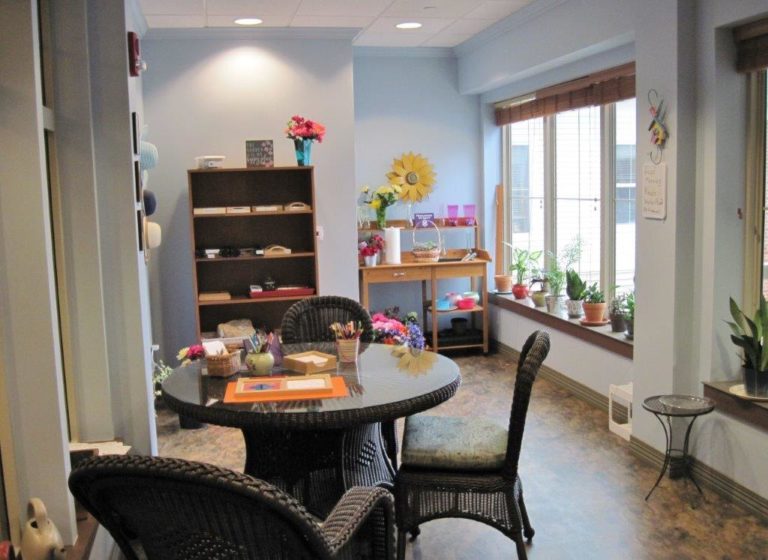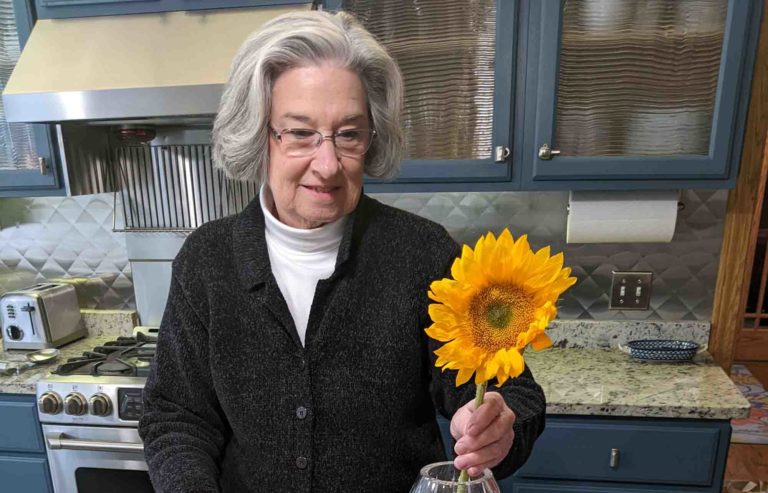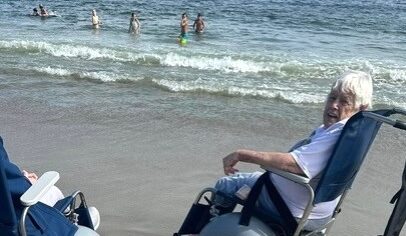Evergreen House: A Care Community that Feels Like Home
Since 2018, Jennifer has been working with Presbyterian Communities of South Carolina and McMillan Pazdan & Smith Architects to design Evergreen House, The Village at Summerville’s new memory support neighborhood. Evergreen House opened in December 2021 and is in the year-long process of rolling out the Montessori for Aging and Dementia philosophy. It is a beautifully designed space based on best practices for people living with dementia. Take a look at the design renderings – now brought to life!
As the project manager coaching the Evergreen House staff through the implementation process, I visit quarterly, observing, training new staff, and working with elders. As of my most recent visit earlier this month, Evergreen House currently has 15 elders living in the community. The first thing you notice when walking through Evergreen is that it feels like home. One reason Evergreen feels so homelike is because elders are not being shuffled through a series of group activities. Whereas most long-term care communities offer whole group activities at certain times of the day, the staff at Evergreen House are trained to engage elders all throughout the day in activities and roles they enjoy. The goal is that at any given time, you will see elders working in the garden, cooking in the kitchen, setting tables for a meal, folding their clean laundry, working on projects at the workbench, listening to music, or playing a game. Elders still enjoy activities that are held regularly at certain times, such as services with the pastor or exercise classes, but the rest of the day consists of open chunks of time, during which elders and care partners are active and busy all day long.
You may be wondering, “What does the Activities calendar look like?”
Great question! While a monthly calendar with whole group offerings is still printed to comply with state regulations, this is not the calendar posted for the benefit of care partners, elders, and families. Instead, a daily schedule is posted that highlights only those special events that are at scheduled times during that day. Evergreen’s current calendar includes a morning block of time called “Care of the Community” and an afternoon block of time called “Courtyard Hobbies & Projects.” This format is allowing elders and care partners to adjust from a traditional structure of group activities at scheduled intervals to that of an organic flow of the day, in which care partners and elders engage in activities and roles they enjoy throughout the day.
The transition to the Montessori approach doesn't happen overnight. It's hard to shake old habits, including those based on good intentions, such as serving elders or designing group activities. We must give care partners permission to slow down and spend meaningful time with elders. Making an elder's bed together may take twice as long, but it allows elders to participate in the life of the home, while engaging in conversation and building a relationship. Watering the garden with an elder may engage someone who has no interest in a group game or art project. It’s just a different way of looking at “activities.” One of the brand-new care partners attending the training was surprised. “You mean I won't get in trouble if I'm sitting with an elder peeling carrots or looking at a memory book together?” Get in trouble? No! Actually, this is a perfect example of what we celebrate as a “Montessori Moment.”

